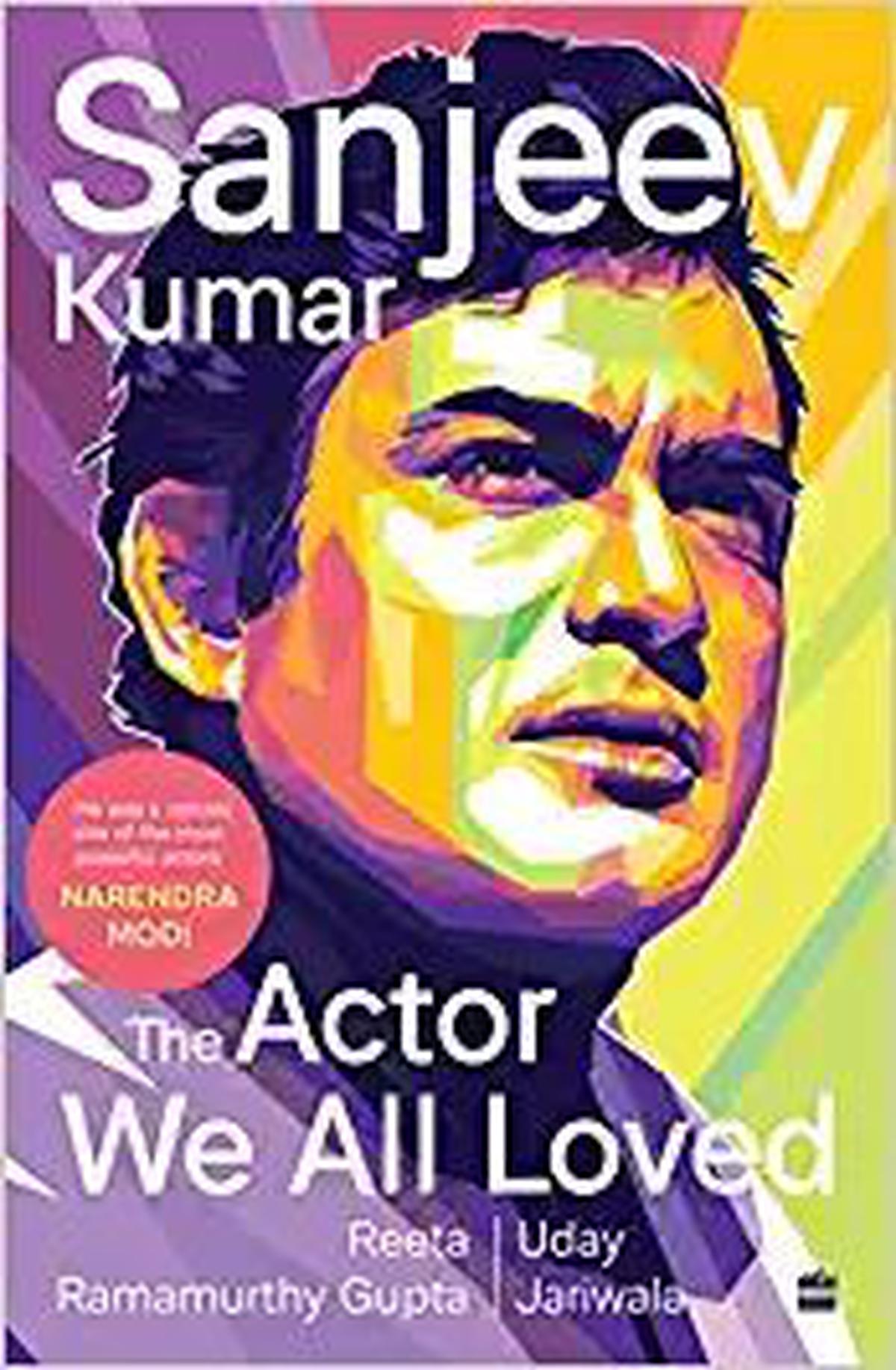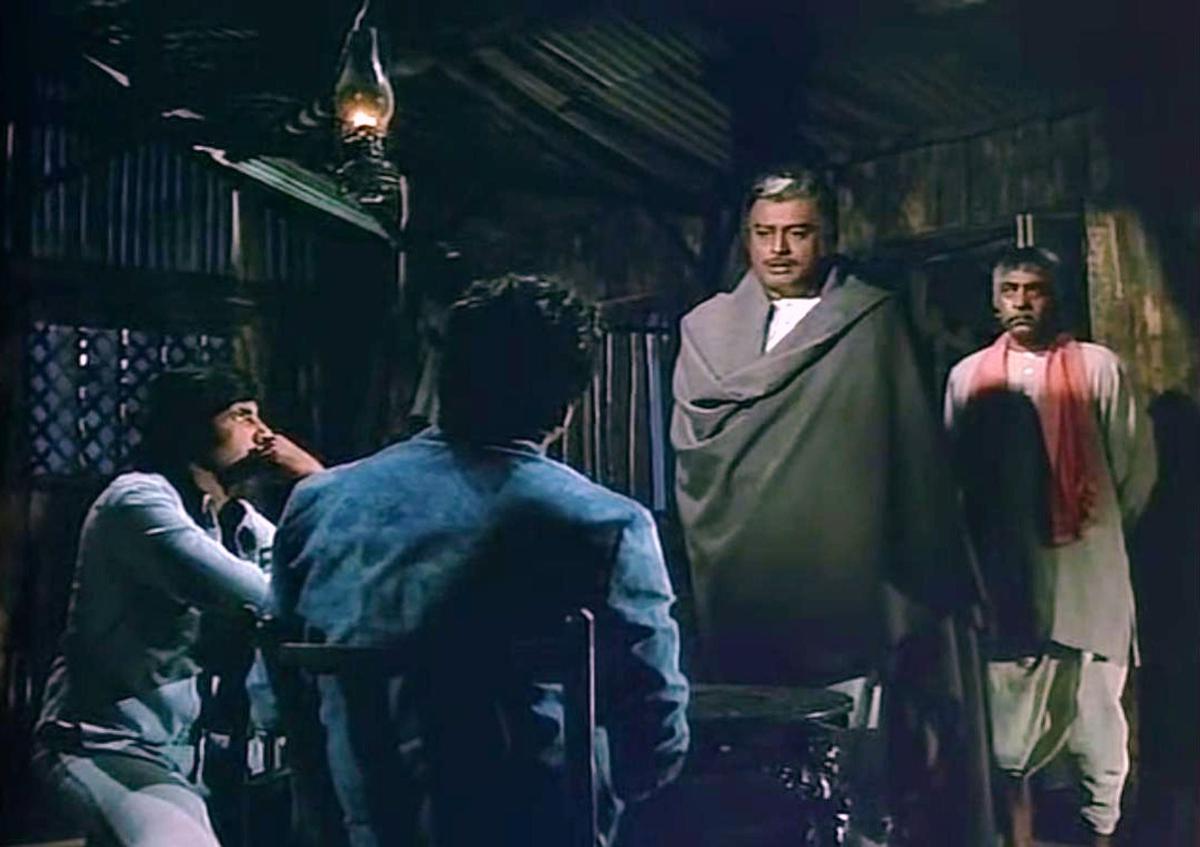A new biography, Sanjeev Kumar: The Actor We All Loved, takes readers through the ups and downs of his life and career
A new biography, Sanjeev Kumar: The Actor We All Loved, takes readers through the ups and downs of his life and career
In the early 1960s, the legendary actor Prithviraj Kapoor watched a stage adaptation of Arthur Miller’s ‘All My Sons’ in Mumbai. He was curious to know who played the old man, and was shocked when he was told that the actor was 23-year-old Haribhai Jariwala, who eventually became famous as Sanjeev Kumar in films.
Filmmaker-lyricist Gulzar recalls this incident in the recently-released book, Sanjeev Kumar: The Actor We All Loved, by Reeta Ramamurthy Gupta and Uday Jariwala (the actor’s nephew). “He couldn’t have got a bigger compliment,” says the veteran.
Sanjeev Kumar could effortlessly fit into any role. In the short span of his life (he died at the age 47), he gave Hindi cinema some truly memorable moments. When he passed away actor Tanuja had said, “There will never be an actor of his calibre again. His legacy is untouchable.”
Film career
Fondly called Haribhai, he acted in 155 Hindi films, including an uncredited appearance in Hum Hindustani (1960), and a cameo in Aao Pyaar Karen (1964). After H.S. Rawail’s Sunghursh with Dilip Kumar and Vyjayanthimala, he played supporting roles in two of Hrishikesh Mukherjee’s films, Aashirwad and Satyakam. However, it was Chander Vohra’s Khilona (1970) that immensely boosted his career. His performance in the film of a man who loses his mental balance after witnessing a disturbing incidence won him rave reviews. Incidentally, it was his 36th Hindi film, an indication of his long struggle. But after Khilona, there was no stopping Sanjeev Kumar.
In the early 1970s, when Rajesh Khanna was the reigning superstar and Amitabh Bachchan was beginning to make a mark, Sanjeev Kumar held his own place by playing diverse and interesting roles. After Khilona, he played a deaf and mute character in Gulzar’s Koshish (1972), co-starring Jaya Bhaduri. Koshish fetched him his second National award, after Rajendra Singh Bedi’s 1970 release Dastak, co-starring Rehana Sultan. He then went on to play nine roles in A. Bhimsingh’s Naya Din Nayi Raat. In 1974, he shared screen space with Rajesh Khanna and Mumtaz in J. Om Prakash’s Aap Ki Kasam, impressing in a smaller role. The year 1975 was perhaps his most successful, with Aandhi, Mausam and Sholay. In 1982, Gulzar’s Angoor and Namkeen added to his long list of versatile performances.

The book, published by Harper Collins, not only talks about his successful films and the not-so-successful ones, but also highlights other factors that made him what he was. These include his love life, decision to stay unmarried, close friendships, deteriorating health, love for food, smoking and drinking. It talks of how he was keen to marry Hema Malini, who he met on the sets of Ramesh Sippy’s Seeta Aur Geeta. Even his mother, whom he was very close to, was in favour of the relationship, but she eventually married Dharmendra. Then, there was Sulakshana Pandit, who was in love with Sanjeev Kumar.
In the book, Tanuja is quoted as saying about how his mother’s demise led to his alcohol addiction. “After her passing, he wouldn’t listen to anyone.” Actor Parikshat Sahni recalls an incident when the two of them visited a Chinese restaurant in Las Vegas, while shooting for the 1982 film Suraag. Sanjeev ordered so much food that the waiter thought there were some more people joining them. He was shocked to see that except the small portion that Parikshat had the actor finishing it all by himself.

The actor in Sholay.
| Photo Credit: The Hindu Archives
In the recent past, this is the second book on the actor, after the Penguin Random House India publication, An Actor’s Actor by Hanif Zaveri and Sumant Batra. This book carries a foreword by Paresh Rawal, an introduction by filmmaker Rakeysh Omprakash Mehra and epilogue by Vidya Balan. “He used his voice exceptionally well. He didn’t have the baritone of Amitabh Bachchan, but he was extremely intelligent and knew what to do with his voice. He was a powerful actor; he owned the screen when he was on it,” writes Paresh.
The book is filled with anecdotes, like the one about how Amitabh Bachchan convinced him to accept Silsila, after he had said ‘no’ to director Yash Chopra. There are chapters where close friends Gulzar, Sachin Pilgaonkar, Shatrughan Sinha, Randhir Kapoor, Tanuja, Anju Mahendru, Sharmila Tagore and Moushumi Chatterjee describe his personality.
As Vidya Balan says in the epilogue, “(He) was limitless because he had no set ways. He imbued truth into the most banal of moments. He made everything believable. He just became the character.” That’s a perfect analysis of the genius that was Sanjeev Kumar.
The writer is a Mumbai-based freelance journalist.
For all the latest Entertainment News Click Here
For the latest news and updates, follow us on Google News.
